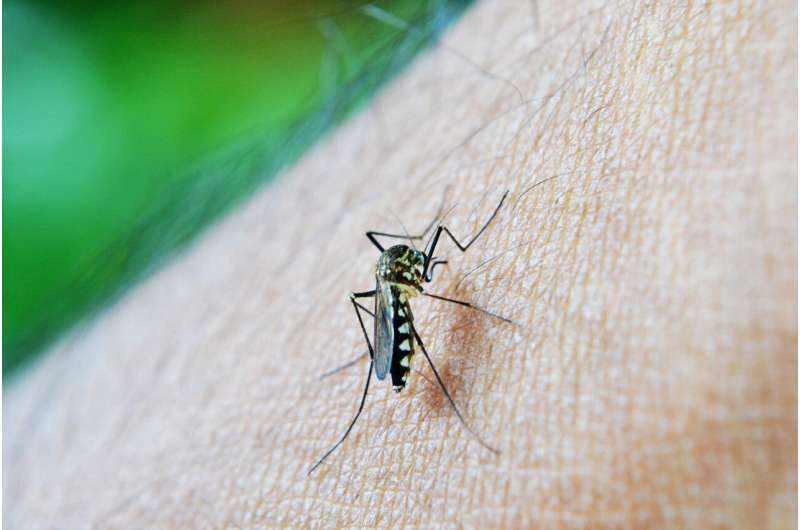
Synthetic biology promises far reaching solutions to human concerns, from averting climate catastrophes to medical breakthroughs. But are ethics keeping pace with emerging technology? The case study of engineered Artemisinin, used to combat malaria, suggests a more nuanced approach is needed to address the ethical challenges such advances bring.
A lead paper in the Proceedings of the IEEE, by Dr. Jacqueline Dalziell and Distinguished Professor Wendy Rogers of the ARC Center of Excellence in Synthetic Biology based at Macquarie University, is the first detailed ethical analysis of the production of semi-synthetic artemisinin.
It showcases a fresh approach to identifying and analyzing some of the ethical issues of synthetic biology, a field of science that applies the engineering cycle of "design-build-test-learn" to creating new living systems.
Artemisinin, derived from the Artemesia annua plant, is one of the first-line treatments for malaria, a disease that afflicts more than 200 million people every year and causes more than 400,000 deaths.
Artemisia annua is the only naturally occurring source of artemisinin. However, global supply is affected by high production costs, unstable plant yield and increasing demand.
"Synthetic biology offered the promise of cheap, plentiful supplies of artemisinin, based on the view that 'anything that can be made in a plant can now be made in a microbe,"' say the authors.
In 2005, the U.S. company Amyris Biotechnologies acquired the production methods developed by a team from the University of California, ultimately producing a semi-synthetic compound called SSA that is identical to its botanical counterpart.
In 2009 Amyris, the non-profit Institute for OneWorld Health, licensed the artemisinic production method to pharmaceutical company Sanofi-Aventis on a royalty-free basis, to provide artemisinin at cost on a "no profit, no loss principle" that did not drastically undercut agricultural producers.
"That was hailed as the first industrial scale deployment of synthetic biology for drug production," says Dr. Dalziell.
However, the production of SSA raised ethical issues.
Sanofi aimed to produced one third of the world's supply, thereby stabilizing supply and price. But that aim was never fulfilled. "The introduction of SSA exacerbated an already volatile market," says Dr. Dalziell. "Seasonal shortages triggered soaring prices, incentivizing farmers to plant more, leading to over supply and falling prices. In the end, SSA became more expensive than botanical artemisinin."
By 2015 Sanofi had sold their factory to Huvepharma which is producing roughly 20 metric tons of SSA annually.
The authors say the case study raises many issues. One is cost versus opportunity—it's estimated the lengthy research process took more than 150 "person years" and cost more than US$50 million.
"We must also ask ourselves what constitutes harm and who benefits from these technologies?" says Dr. Dalziell, given the impacts on producers of natural artemisinin.
"The story of artemisinin reveals gaps in the way we currently undertake ethical analysis of synthetic biology. Rather than focusing on abstract issues, debates should include those most affected by proposed synthetic biology applications. In seeking and accepting funding, scientists have responsibilities to consider the global and social ramifications of their projects."
"Current approaches to the ethics of synthetic biology lack the specificity and nuance to address such questions."
Explore further
Provided by ARC Centre of Excellence in Synthetic Biology (CoESB)
Citation: Are the ethics of synthetic biology fit for purpose? (2022, June 6) retrieved 6 June 2022 from https://ift.tt/mqF03It
This document is subject to copyright. Apart from any fair dealing for the purpose of private study or research, no part may be reproduced without the written permission. The content is provided for information purposes only.
"fit" - Google News
June 06, 2022 at 10:25PM
https://ift.tt/mqF03It
Are the ethics of synthetic biology fit for purpose? - Phys.org
"fit" - Google News
https://ift.tt/9lXRwbH
https://ift.tt/q72yrJm
Bagikan Berita Ini














0 Response to "Are the ethics of synthetic biology fit for purpose? - Phys.org"
Post a Comment